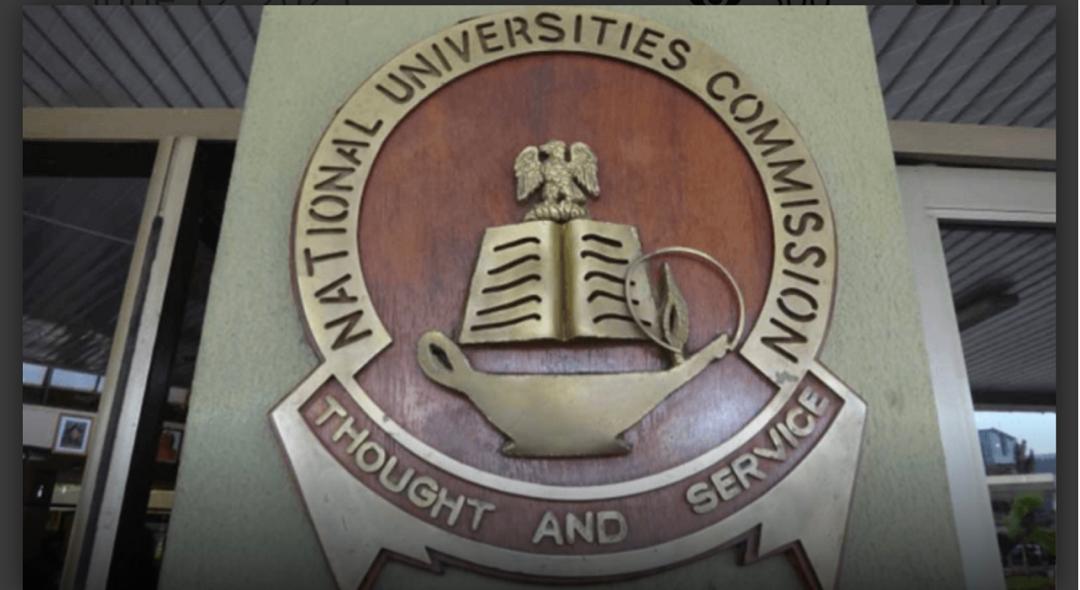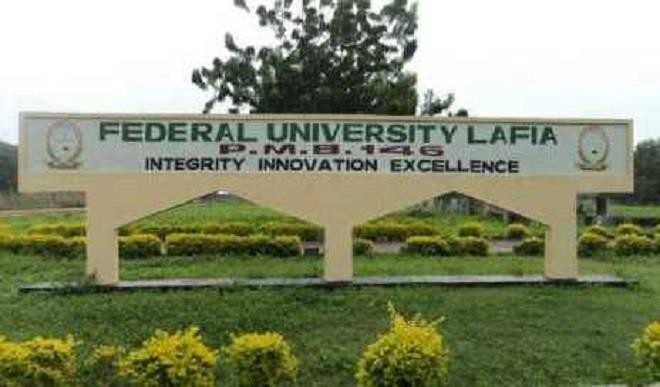Education
NUC debunk claims of lax accreditation standard

Mariam Abeeb
The National Universities Commission (NUC) has responded to allegations made on social media by Taofik Olatubonsun, claiming that the Commission’s accreditation process is a mere formality.
In a statement signed by Professor Abdullahi Yusufu Ribadu, Executive Secretary of NUC, the Commission described the claims as “false, baseless, and disseminated from an uninformed position.”
The NUC emphasized that its accreditation process is a rigorous evaluation system designed to ensure that universities uphold high academic benchmarks.
The Commission’s regulatory regime has been recognized as one of the most robust quality assurance ecosystems in Africa, with countries like Namibia, Gambia, and Niger Republic seeking to understudy its best practices.
The statement highlighted that the NUC’s programme accreditation evaluates individual academic programmes to ensure compliance with the Core Curriculum Minimum Academic Standards (CCMAS). To attain Full Accreditation Status, a programme must score a minimum of 70% in each of the four core areas, including Academic Matters, Staffing, Physical Facilities, and Library, and an overall score of 70% or above.
The NUC also clarified that staffing is a core component of accreditation, and the adequacy of permanent staff on a programme is a major consideration. While the guidelines permit a maximum of four part-time academic staff, equivalent to two permanent staff, any attempt to present temporary staff or falsify records will attract sanctions.
The Commission assured the public that it maintains strict ethical standards during accreditation and that any officer found compromising the process will face severe disciplinary action.
The NUC remains committed to ensuring that Nigerian universities produce competent graduates who can compete globally and urged stakeholders to rely on verified information rather than baseless accusations.
Education
Inclusive Education Boost as Deaf-Tech, Federal University of Lafia Roll Out Master’s in Disability Studies

Joel Ajayi
In a major step toward advancing inclusive education in Nigeria, Deaf-in-Tech, an initiative of Data-Lead Africa, has signed a Memorandum of Understanding (MoU) with the Federal University of Lafia (FULAFIA) to establish a Professional Master’s Degree in Disability Studies.
The signing ceremony, held at Deaf-in-Tech’s headquarters in Abuja, featured a goodwill message from Prof. Adaka Terfa Ahon, Director of the Centre for Disability Studies, who represented FULAFIA’s Vice Chancellor, Prof. Shehu Abdul Rahman. He reaffirmed the university’s commitment to championing disability and inclusion in its academic innovation and planning.
The new Master’s programme will adopt a hybrid learning model, with online classes complemented by in-person sessions at Deaf-in-Tech’s training facility in Abuja. It is designed to build expertise in disability-inclusive governance, education, and development across sectors.
Executive Director of Deaf-in-Tech and Co-Founder of Data-Lead Africa, Dr. Arowolo Ayoola, described the collaboration as a “structural shift” in how institutions and professionals engage with disability issues. “The inclusion journey must begin with knowledge, and we are proud to partner with a progressive university like FULAFIA,” he said.
Beyond the postgraduate programme, the partnership will also establish a Deaf-in-Tech Club on FULAFIA’s campus — the first of its kind — to empower Deaf students with technology skills, mentorship, and innovation opportunities. Additional initiatives include a ₦1 million academic excellence reward for any Deaf student who graduates with a First Class, as well as the development of a disability-accessible website and digital database for the Centre for Disability Studies, built to WCAG 2.1 global accessibility standards.
The alliance underscores both institutions’ commitment to building inclusive systems and celebrating excellence, while positioning Deaf-in-Tech as a catalyst for bridging the gap between disability and the digital economy.
-

 Featured6 years ago
Featured6 years agoLampard Names New Chelsea Manager
-

 Featured5 years ago
Featured5 years agoFG To Extends Lockdown In FCT, Lagos Ogun states For 7days
-

 Featured6 years ago
Featured6 years agoChildren Custody: Court Adjourns Mike Ezuruonye, Wife’s Case To April 7
-

 Featured6 years ago
Featured6 years agoNYSC Dismisses Report Of DG’s Plan To Islamize Benue Orientation Camp
-

 Featured4 years ago
Featured4 years agoTransfer Saga: How Mikel Obi Refused to compensate me After I Linked Him Worth $4m Deal In Kuwait SC – Okafor
-
Sports3 years ago
TINUBU LAMBAST DELE MOMODU
-

 News9 months ago
News9 months agoZulu to Super Eagles B team, President Tinubu is happy with you
-
Featured6 years ago
Board urges FG to establish one-stop rehabilitation centres in 6 geopolitical zones
